Earlier this year the Vermont College Of Fine Arts announced the appointment of a host of new faculty members to its new Masters In Film programme. The inaugural class at the school’s Montpelier campus will take place this autumn. Tyler Pukatch pays attention.
How does the VCFA Film MFA programme differ from those of other film schools?
Laura Colella, chair of the Vermont College Of Fine Arts Film School: It’s low residency, which seems like the right [idea]. When someone is working on a project, it’s valuable to offer one-on-one mentorship and guidance through the process. What people crave the most is one-on-one instruction and to have a programme that’s founded on that idea that’s project-based learning and that has as a part of it screenings or readings that feed the particular project. That’s really optimal. And it streamlines the process when a student is making something to have them focused really on that process.
Tom Greene, president of the Vermont College Of Fine Arts: Because full residency means people live on a college campus for two years, in film that generally means going to Los Angeles or New York. For lots of filmmakers that isn’t an opportunity… but they can get to Vermont for 10 days every six months. And I think it’s really a fabulous form of education, because you really get a lot more attention this way, paradoxically, and you get the opportunity to work one-on-one. So you’re not in a class of 35 people, where someone comes in and gives a lecture. Instead, you are making a film, and you’re working with someone who really knows how to make films. And you’re working with them one-on-one, and every month you’re sharing your work, and then you come back again to Vermont, and your work gets critiqued by other filmmakers, by your peers. And there are visiting filmmakers that come in to visit and lecture on different things. You get that compressed, intense experience with that one-on-one education, which in many ways is truer to the life of an artist than being on a college campus for two years and taking classes.
How did you go about picking staff?
TG: When we start a new programme we look to hire a leader who’s respected in the field, whose work is kind of current and who’s active in making a difference right now. So we really cast a wide net [and] it was a matter of getting out of the way and letting [Laura] decide who made the most sense. We had a sense of what we wanted to be able to teach. We wanted people who could work in narrative film, documentary, animation and screenwriting. With that kind of marching order, she went out and put together her dream team of people. [She] talked to a lot of different folks and just put together a group of people that she’s going to feel really excited about working with but also who are going to represent to our students what is happening right now in independent film.
What brought you to the school?
Brandon Cole, faculty member, MFA in film: Well, to me it’s a school that’s trying to teach you different ways than the ones I’ve been associated with. I looked at what’s coming out of [other film schools] and [they don’t] seem to be doing what [they’re] supposed to do. It looks to me like Vermont is trying to do something that’s cost-efficient and a little more serious. It’s about people who want to learn, and it’s about people who want to be involved. Part of that is we all teach each other and learn when we work together.
Dan Schrecker, MFA in film: There is a sense that it’s an online model in some ways. There’ll be some stuff going on up in Vermont but students can be in different places and the professors are all over the place. It’s also reflective of the industry and in some ways of filmmaking in general. It’s also proactive and people are all over the place. Technology’s enabling us to do [things] in a lot of different ways and it wasn’t done like that before. I’m excited to see where it goes.
How do you expect the first year to go?
LC: I’m imagining diverse students who are driven by particular projects that they want to achieve and I’m really looking forward to the residencies [the twice-a-year on-campus sessions that help fine tune student goals and encourage students to meet one another and the teachers.] I just imagine a lot of connections potentially being made between students and faculty, and between students and other students. So students might actually be able to get close to each other and work on each other’s projects, either physically or remotely or that faculty could also work together on things. If they have a short story they might want someone to adapt and write into a film [or] someone might have a film that needs scoring and someone from the music department might meet up with them [or] the art department might want to do production design or character design for animation. There’s a lot of potential.
What is your favorite part of the job?
Terence Nance, MFA in film: I was just very privileged [as an undergrad student at Northeastern University and a graduate at New York University] to have people in an academic environment but also outside of it, who I respected, who took the time to help me out and […] always took time to make sure that I was moving forward. I had the privilege of having those people, so it’s always exciting to have the opportunity to be that for somebody else, to give back what was given to me.
My approach to filmmaking is ‘all options on the table,’ to use a completely inappropriate phrase. So hopefully I can be the voice for avant-garde or experimentalism or the ‘no rules’ school of image-making, of filmmaking. Hopefully I can bring that ideological perspective. No rules and little structure.
It allows for a more individualised relationship with the students. I think especially in art-making there’s no ‘this is the way you do this.’ It’s more like psychotherapy; it’s creating an environment where someone can find their own way. That’s important.
DS: I love working with students. We’ve got a lot of young people coming into our shop now, so over the years I’ve become some sort of boss or senior guy here, but it’s a weird position to find myself in… but it’s fun, so I’m going to be able to mentor, stuff like that. I’m not a professor, but I do [get that warm and fuzzy feeling] when I go to a class and I just speak. It definitely feels good to tell them what I’ve been through and see them appreciate it and feel that they might be able to put it to use someday.



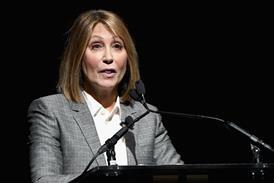







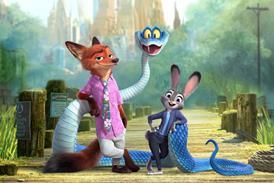
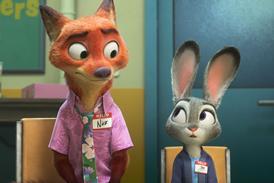

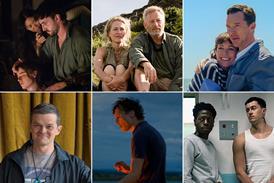
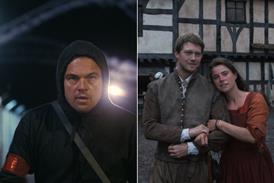








No comments yet